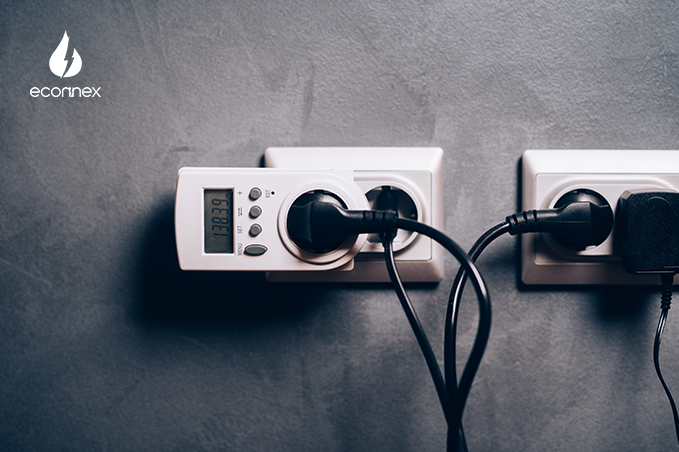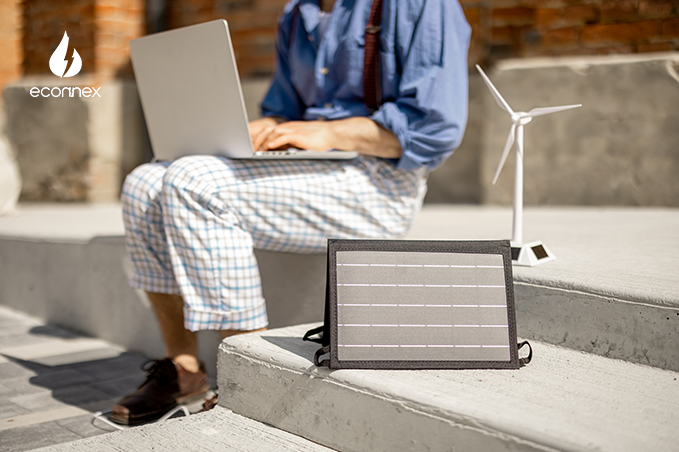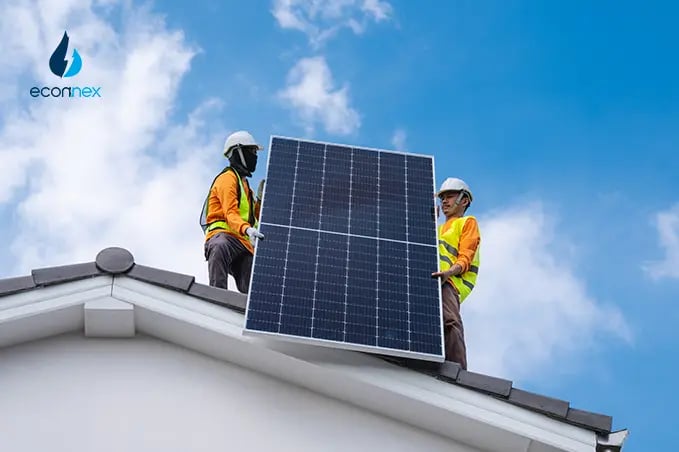You’re all set to go solar and save big time on your energy bills. Win.

Published on 09/01/2024
By William Walton
Solar Comparison
How to choose the best solar battery for you
You’re all set to go solar and save big time on your energy bills. Win.
Now it’s time to shop for your solar battery and panels.
Your battery is perfect for storing the excess energy that you generate from your solar PV system.
Here are all the main things you need to consider when it comes to comparing solar batteries:
This is one of the most important factors that you need to keep in mind.
The capacity of the battery signifies how much power your battery can store, and how long it will last, and is measured in kilowatts (kW).
This refers to the total amount of energy used, and is the rate of your energy usage.
The right amount will depend on how much energy you typically use in your home, so to get an idea, take a look at your previous bills.
You can work out your daily usage by dividing your monthly bill by 30 or annual bill by 365.
If you’re still not quite sure the exact capacity you’re going to need, it’s always better to have more – and this will give you flexibility should your energy consumption increase.
The battery size is measured in kilowatt-hours (kWh).
The kWh in your battery bank tends to be used at night or when there is not a lot of light outside, which is when solar production is not enough to power your appliances.
Generally speaking, a 5Kw solar panel system will produce anywhere between 1721 kWh per day, depending on where you’re located in Australia.
Smaller batteries are usually 2kWh, going up to 20kWh or more.
The greater the storage capacity of the battery, the more expensive it tends to be. That’s why it’s key to work out how much will fit into your personal budget.
The best way to do this is to look around for a good quality battery and compare prices at different retailers – rather than just opting for the cheapest.
Generally, residential solar battery storage prices tend to be around $1,000 per kWh including installation.
If you are looking to compare solar panels, you can head to Econnex Comparison now and check out top deals from leading retailers there.
Here’s another important question to ask yourself: do you want backup power if you have a blackout?
There are plenty of batteries out there that can power your home if you have a power outage, which is great.
However you will need to have your battery specially set up by your installer to do so – and this often requires extra hardware.
Some batteries cannot charge from your solar PV system if the grid is down, so enquire with your installer to see what the exact specifications are of your batteries when it comes to charging.
Battery life is measured in three different ways: expected years of operation, expected throughput and expected cycles.
The battery life is calculated in years, whereas its predicted throughput and cycles are similar to a car’s mileage warranty.
Solar batteries have a very high lifecycle, which means that they don’t need frequent maintenance or replacement, and can be used ongoing without many issues.
So there you have it. Don’t get confused by all the terminology out there – we’ve got you covered.
For the latest deals on solar panels from leading retailers, compare with Econnex Comparison now.



